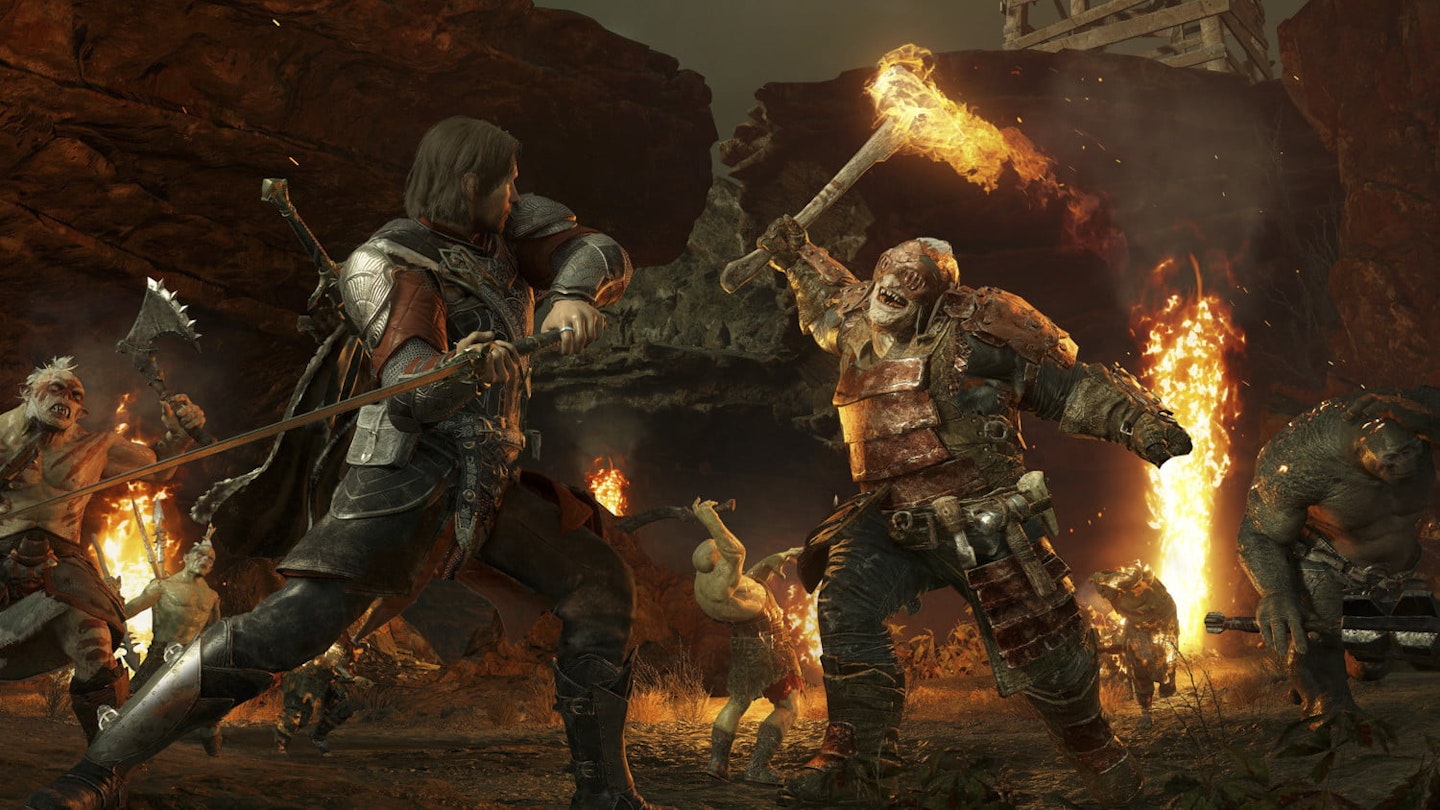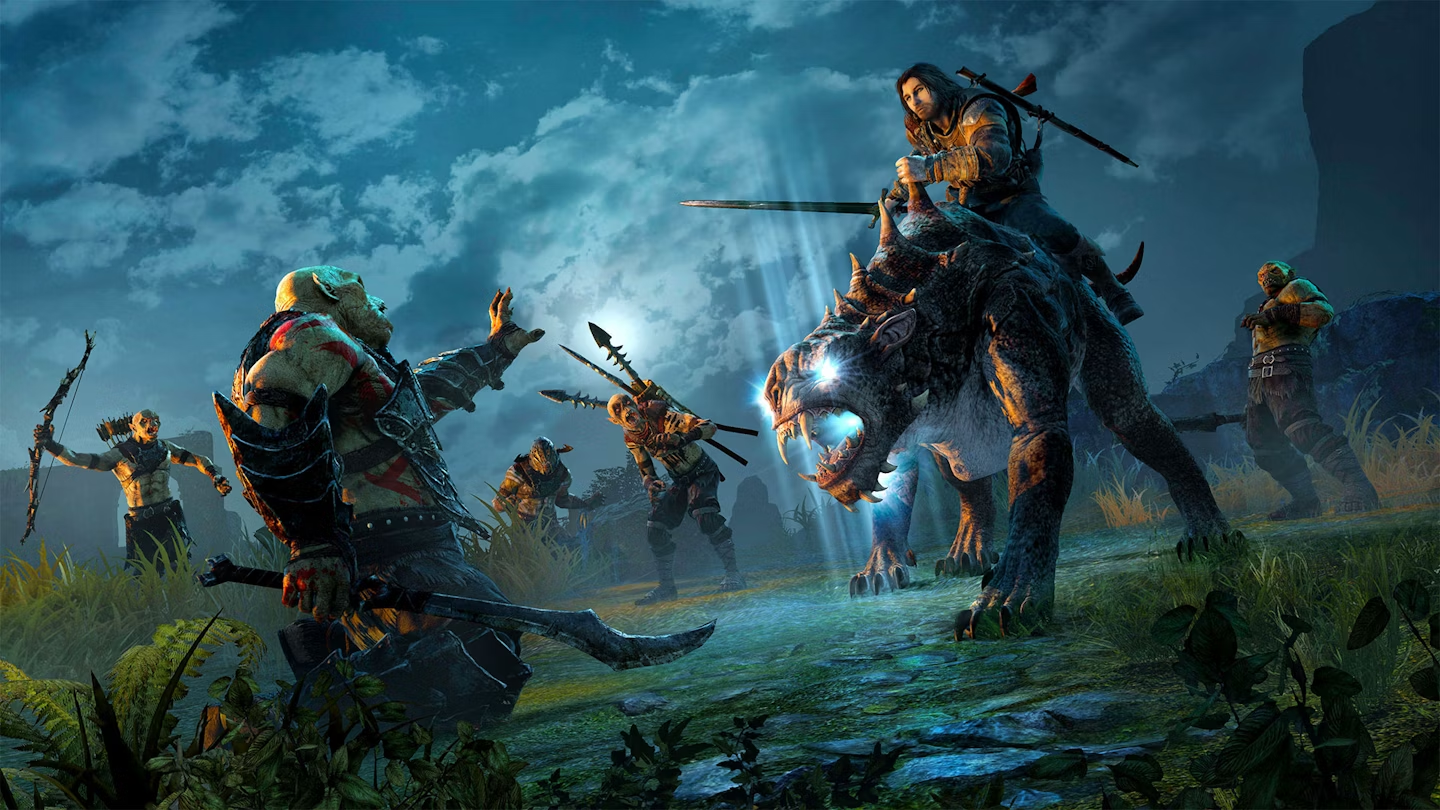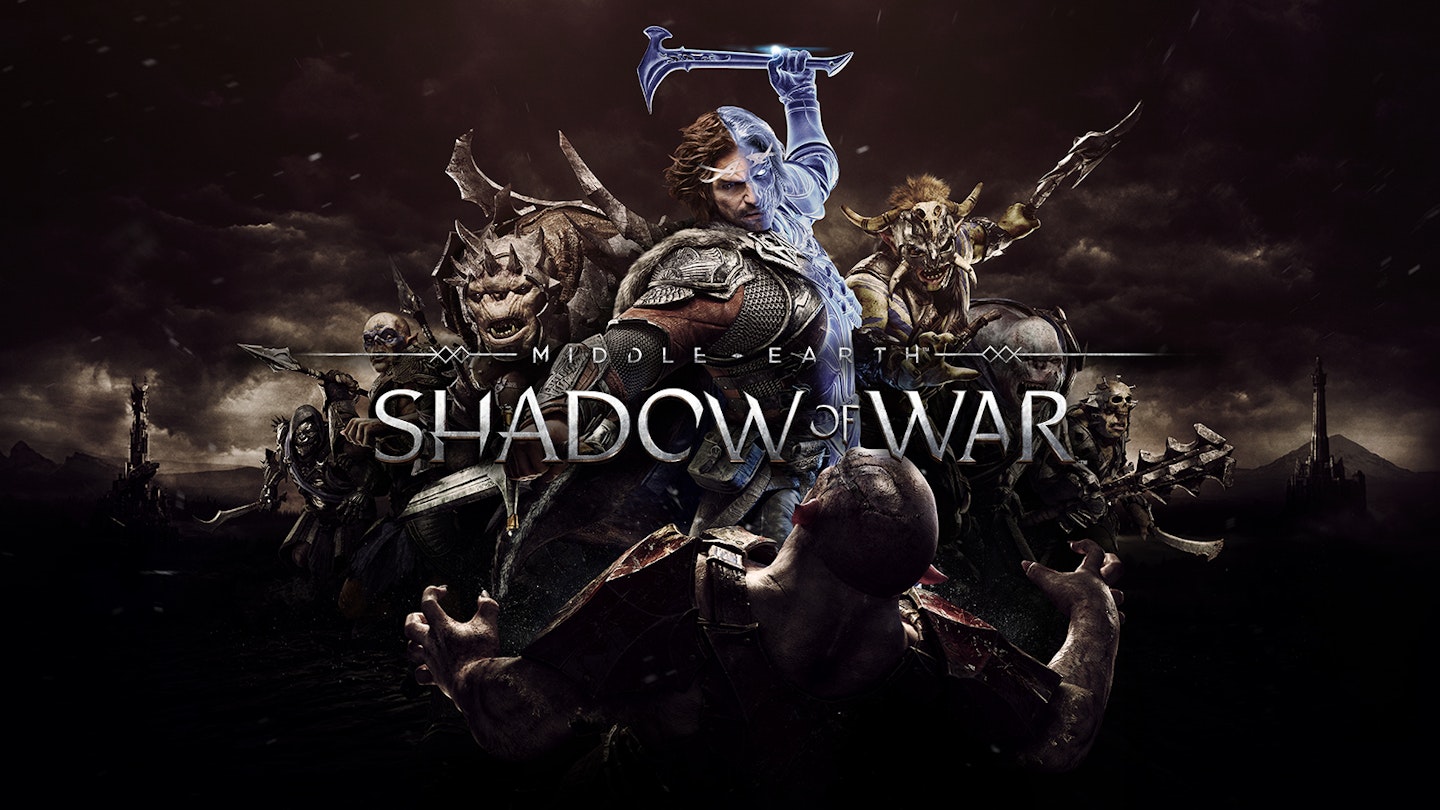Several hours into Middle-earth: Shadow of War, we find ourselves straddling a drake, surveying an orc-occupied fortress from the sky above. As returning ranger/wraith protagonist Talion, we command our mount to breathe a steady stream of flame onto the green-skinned foes below.
As we cook adversaries from a safe distance, our orc allies — brainwashed into joining our cause some hours earlier — deal death on the ground. Among their ranks is a behemoth-like ogre that turns the stronghold's fortified gates to toothpicks, while a caragor-riding Uruk lops the heads off anything crossing his growling mount's path.

Engulfing the fortress in fire from atop a beast that would make the Mother of Dragons envious, while watching your troops tear things up on the surface, recalls the kind of epic clashes typically reserved for a game's climactic conclusion. In Shadow of War, however, this stuff happens all the time.
In fact, the skirmish above was but a small slice of a much larger battle, one that saw Talion teleport to a dozen adversaries before opening them from belly to brain-stem, sic swarms of spiders on fleeing foes, and, ultimately, face the stronghold's powerful overlord in an extended, blood-soaked bout.

Shaped by the game's various story-shaping systems, such encounters are not scripted, but rather emergent, dynamic, and heavily directed by the player. Most notably, the series' innovative Nemesis System returns from 2014's Shadow Of Mordor, allowing fans to make game-long friends — but mostly enemies — and have a direct influence on how the world responds to their actions.
While assassinating, recruiting, humiliating, and manipulating adversaries lets you personalise your encounter and overall narrative, the game's sprawling skill trees affords the same freedom in customising your character. Fun, meaningful abilities — like the aforementioned teleportation and arachnid army — dominate the extensive upgrade path, making progressing Talion an endlessly rewarding experience.
Toss in polished, spot-on mechanics — from fluid navigation to crunchy combat — and even gutting low-level grunts is a blast from behind the ranger's twin blades. Of course, it doesn't hurt that there's way more to do than pile up corpses. On top of overtaking fortresses, there are numerous story missions and side-quests to tackle, loot to secure and upgrade, and armies to amass.

If Shadow of War stumbles at all, it's in its storytelling. The game offers a welcome, mature take on Tolkien's universe, but also steps liberally on established lore while propping up its gore-soaked action. The plot stretches in numerous directions, which does lend meaning to even the most mundane of missions, but it also splits focus and can quickly become confusing while hopping from task to task.
If you try not to sweat the canonical mis-steps and go along for the ride — preferably atop a fire-spewing mount — you'll discover a highly satisfying sequel that is not only one of this year's stand-out releases, but arguably the one Lord of the Rings game to rule them all.
